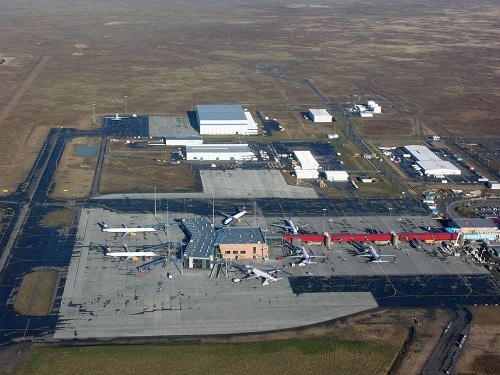Iceland is to benefit from a planned high-speed rail link connecting Keflavik International Airport to Reykjavik Central. The project is planned to cost around £50 million and it has been said it may create opportunities for British construction firms.
The rail link will span the 29 miles (45 kilometres) between the two points and provide high-speed travel for those heading to or from the airport. This will include approximately 22 miles (35 kilometres) of railway above ground, which will travel from the Keflavik International Airport to Hafnafjordur town. There will also be an underground railway totalling just over 8 miles (13 kilometres). The station at Keflavik International Airport’s end of the new line will be above ground, while the Reykjavik end will be an underground station.
There will be four trains travelling in each direction every hour at speeds averaging around 112mph (180km/h). Taken together, they will have the capacity to transport up to 1,000 passengers each way per hour, and there are plans that this capacity may be doubled at a later date if demand proves sufficient to warrant such a move. Current estimates of demand for the new service suggest that 3-4 million passengers might want to travel on the new high speed rail line ever year. Forecasts suggest that by 2033, this figure could have risen dramatically, potentially reaching up to 6.5 million passengers a year.

Such a rail link has been looked into many times before, as there is significant demand for better transport links between this major international airport and Iceland’s capital city. Previous estimates had suggested that the cost of such a project could be much higher, and this is perhaps the factor that kept such a line from actually being built until now. Late last year, one reasonably well-publicised estimate suggested that the project could cost more than ten times what has turned out to be the final value. A report presented to Reykjavik’s city council at that time suggested up to £512 million of spending may be necessary.
The project stands to significantly reduce travel times between the airport and Reykjavik. Currently, travellers predominantly undertake the journey by Flybus, which takes around 40 minutes. The high-speed rail line would cut this journey time to just 15 minutes. In spite of the disparity, it is expected that a ticket for the high-speed train would be only marginally more expensive than the fare for the much slower Flybus.
Author: Matthew Scott
Latest Events News
- Executive Hire Show 2026 delivers business, innovation and record engagement at CBS Arena
- Steve Vick International to make Executive Hire Show debut with Renset power station
- Innovation Trail highlights the kit shaping hire’s next chapter
- Registration Now Open for 2026 National Heavy Equipment Show
- Build Your House Saudi & Inspire for Home KSA Launch in Riyadh — Bringing Qatar’s Premier Home & Lifestyle Exhibitions to the Kingdom
 Constructionshows
Constructionshows